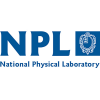Snabbfakta
-
- Teddington
Ansök senast: 2024-06-29
PhD Vacancy - Shedding New Light on Agrochemicals
Publicerad 2024-04-30
Shedding New Light on Agrochemicals: Exploration of Nanoparticles as Delivery Vehicles for Enhancing Translaminar Movement
Nanoparticulate carriers have great potential to provide targeted agrochemical delivery and dose reduction while transforming agriculture into a more sustainable environment. In partnership with Syngenta and NPL, this project will explore the application of cutting-edge photonic techniques to provide new insight into how nanoparticle carriers interact with plants at the cellular scale to enhance the delivery of active ingredients. Current projections predict the world’s population will have increased by 25% in 2050 reaching 9.7 billion1 people. Meanwhile arable land is being lost at an alarming rate – a 2015 study revealed around 33% of the world’s arable land had been lost between 1975 – 20152. What this means is that there will be significantly more mouths to feed from substantially less land. Given that global food production is already being stretched to its limits, major technological developments in agriculture are needed to meet future demands. Agriculture relies heavily on crop protection products.
A 2018 study revealed that crop yields without the use of such products are 20 – 40% lower than when they are used3. While these gains are impressive, further improvements can be made by minimising losses of active ingredients during the delivery process. Nanotechnology holds significant potential for the development of novel pesticide formulations with reduced toxicity and environmental impacts. Utilising nanoparticle formulations could safeguard soluble agrochemicals, precisely target weeds, and prevent uncontrolled dispersion into subsoil and groundwater. Upon application in the field, these particles gradually release the compound at the required locations, thereby minimizing losses into the subsoil due to rain and irrigation. Consequently, the quantity of active ingredient needed for is significantly reduced. This project will explore the feasibility of a cutting-edge optical imaging technique, Coherent Raman Scattering, to provide new insight into the size dependent uptake of nanoparticles into leaves and to explore whether it is possible to detect the controlled release of agents from particles into cells. This capability could transform agrochemical R&D and lead to the rational engineering of the next-generation of agrochemicals with enhanced efficacy and reduced environmental impact.
The student will benefit from training in cutting-edge photonics and access to Exeter’s EPSRC CONTRAST facility. Syngenta will provide expertise in nano-formulations, and bring valuable insight into agrochemical development and commercialisation. NPL will provide training/expertise in standardisation to enable the translation of the novel analytical technique into an industrial R&D setting.
Fler jobb från Talent
2024-05-03
2024-05-03












